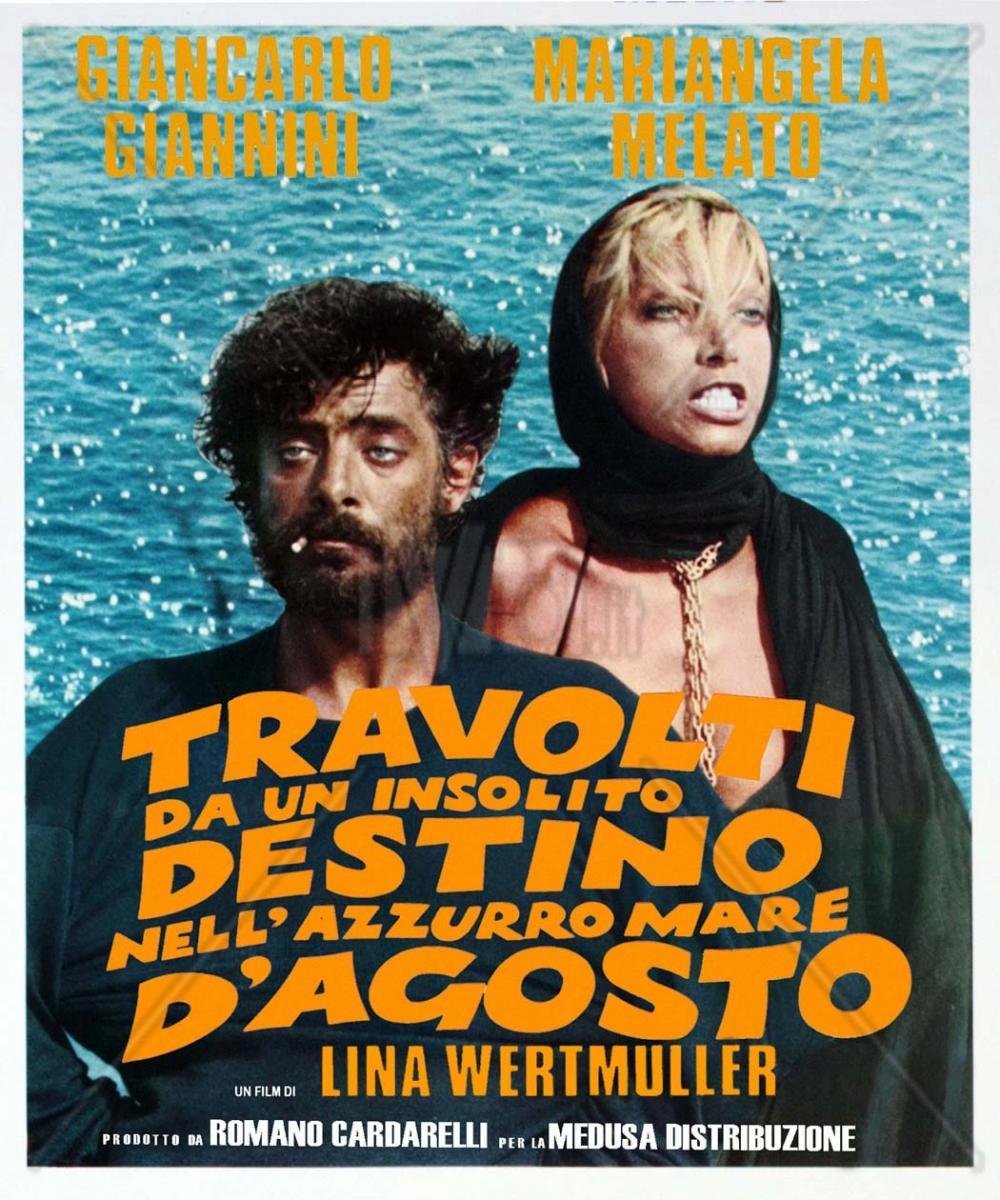
Swept Away (Italian: Travolti da un insolito destino nell’azzurro mare d’agosto) is a 1974 Italian adventure comedy-drama film written and directed by Lina Wertmüller, starring Giancarlo Giannini and Mariangela Melato. This critically acclaimed film explores themes of class struggle, power dynamics, and human connection, wrapped in a story of survival and role reversal. Set against the backdrop of a deserted Mediterranean island, the narrative pits capitalist arrogance against communist fervor, creating a volatile yet transformative relationship between its two main characters.
The film received the 1975 National Board of Review of Motion Pictures Award for Top Foreign Film, cementing its place as a standout work in international cinema. Originally titled Swept Away… by an Unusual Destiny in the Blue Sea of August, its English title was later shortened for broader releases.
Plot Summary
Raffaella (Mariangela Melato), a wealthy and outspoken capitalist, joins her friends for a yachting vacation in the Mediterranean. Her constant criticism of leftist politics irritates Gennarino (Giancarlo Giannini), a Communist deckhand aboard the yacht. Despite his quiet disdain, Gennarino tolerates her to keep his job. When a late-night dinghy excursion goes awry, the two find themselves stranded at sea, eventually washing ashore on an uninhabited island.
On the island, Raffaella’s privileged demeanor clashes with Gennarino’s rugged self-sufficiency. Initially, she demands his obedience, but the power dynamic shifts as he refuses to comply. Gennarino asserts dominance, expecting servitude in return for his survival skills. Their relationship takes a tumultuous turn, blending hostility, attraction, and a complex interplay of dependence and power. The two forge an uneasy bond, but the return to civilization ultimately restores the societal norms that separate them. Raffaella re-embraces her privileged life, while Gennarino returns to his bleak existence, burdened by the weight of their shared but fleeting connection.
Critical Reception
The film earned praise for its bold storytelling, sharp social commentary, and the dynamic performances of its leads. Critics lauded Lina Wertmüller for her incisive exploration of class and gender dynamics.
•Roger Ebert, in his 1975 review, described Swept Away as “a provocative and unapologetically controversial film,” commending its ability to tackle uncomfortable themes with both humor and intensity.
•Vincent Canby of The New York Times called it “an unforgettable dissection of human relationships under extreme circumstances,” highlighting the chemistry between Giannini and Melato.
•On Rotten Tomatoes, the film holds a 92% approval rating, with many viewers praising its subversive narrative and powerful ending.
However, its depiction of gender roles and physical violence has also sparked debate. Some modern viewers criticize the film for romanticizing problematic dynamics, though others interpret these elements as intentional critiques of patriarchal and class-based systems.
Legacy
Swept Away remains a landmark film in Italian cinema and a testament to Lina Wertmüller’s pioneering vision as one of the first women nominated for a Best Director Oscar (for another film, Seven Beauties). Its complex characters and daring social commentary continue to spark discussions, making it a timeless, if polarizing, work of art.





